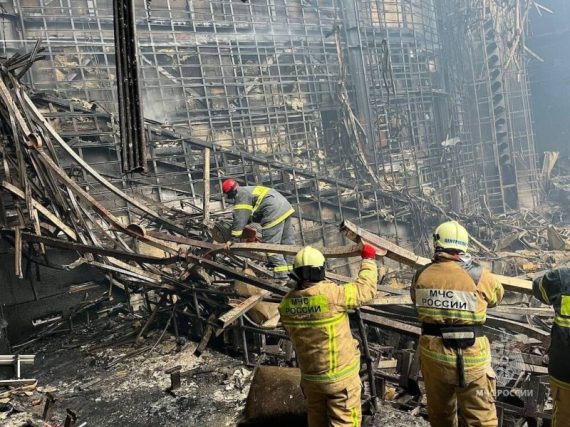I
n the aftermath of the tragic gun attack on a concert hall outside Moscow, Russia has cast doubt on assertions made by the United States regarding the involvement of the Islamic State militant group. The attack, which claimed the lives of 137 people and left 182 others injured, marked one of the deadliest incidents inside Russia in two decades.
The assailants, identified as four men, stormed the Crocus City Hall on Friday night, indiscriminately firing upon concertgoers just moments before the Soviet-era rock group Picnic was set to perform their hit song “Afraid of Nothing”.
Following the attack, four suspects, including at least one individual of Tajik origin, were apprehended and remanded in custody for terrorism-related charges. They were presented separately at Moscow’s Basmanny district court, confined within a cage and escorted by officers from the Federal Security Service.
Complicity on “the Ukrainian side”
While the Islamic State has claimed responsibility for the attack, the United States publicly endorsed this assertion, citing intelligence regarding an imminent threat that had been shared with Russian authorities earlier in the month. However, Russian President Vladimir Putin refrained from explicitly linking the gunmen to the militant group, instead suggesting that they were attempting to flee to Ukraine.
President Putin’s statements implied complicity on “the Ukrainian side,” alleging that certain individuals had been prepared to assist the gunmen in crossing the border. In response, Ukraine vehemently denied any involvement, with President Volodymyr Zelenskiy accusing Putin of attempting to deflect blame for the concert hall assault.
In a move that further underscores the divergence in narratives, Russia’s Foreign Ministry spokesperson, Maria Zakharova, questioned the validity of the U.S. assertion linking the attack to the Islamic State. Zakharova’s remarks, published in the Komsomolskaya Pravda newspaper, raised doubts about the U.S. narrative and suggested ulterior motives behind such claims.
US support
Zakharova insinuated that the United States was leveraging the specter of the Islamic State to obfuscate its own interests in Kyiv, alluding to past U.S. support for anti-Soviet fighters in Afghanistan during the 1980s.
The development comes amid heightened tensions between Russia and the West, particularly in the context of the ongoing conflict in Ukraine. The Russian invasion of Ukraine in February 2022 triggered a significant escalation of hostilities, drawing extensive support from the United States and its European allies for Ukraine’s defense efforts.
As investigations into the concert hall attack continue, the uncertainty surrounding the perpetrators and their motives deepens, while diplomatic exchanges between Russia, Ukraine, and the United States remain fraught with conflicting narratives and geopolitical implications. Meanwhile, the French government has elevated its terror alert status to the highest level in response to the Moscow shootings, reflecting the global reverberations of the tragic event.
Source: Reuters
Recommended





